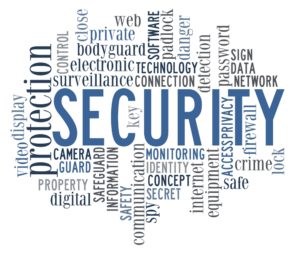 Cyber security is a term that simply cannot be ignored anymore; the disastrous results of cyber attacks against major corporations have shows that there is an immediate need for people to become more cyber secure. However, it’s not just the businesses and companies that are at risk, it’s also you! Yes, your own private information might be at stake from unauthorized and unscrupulous persons on the internet.
Cyber security is a term that simply cannot be ignored anymore; the disastrous results of cyber attacks against major corporations have shows that there is an immediate need for people to become more cyber secure. However, it’s not just the businesses and companies that are at risk, it’s also you! Yes, your own private information might be at stake from unauthorized and unscrupulous persons on the internet.
Such persons can gain access to your computer and steal vital information like bank account passwords, private conversations, pictures, credit card credentials, etc. They can then misuse it in your name or blackmail you for personal gain. Here are 6 ways to protect yourself against hackers once and for all.
1. Secure Your Email Account
There’s a misconception that email accounts don’t need to protected as well as online bank accounts and social media accounts. However, nothing could be further from the truth. Nowadays, hackers can gain unauthorized access to your email account, reset the password, and then you can bid farewell to your social media accounts, bank accounts, etc.
This is because most of these systems have become integrated. The solution is to change your email account’s password often and always use a strong password.
2. Never Give Out Your Passwords and PINs
This goes without saying: please never give out your password or PIN to anyone! Whether it is your email password, Facebook password, mobile phone PIN code or password, credit or debit card PIN, etc. If you have a hard time keeping track of all your passwords, make a list and store it in a safe place.
3. Update Your Devices
It’s not just your computer or laptop that is at risk, your smartphone, tablet, gaming consoles, IP cameras, etc. are all susceptible to hacking. To prevent them from being hacked, always update the respective device’s firmware as soon as updates are available. Such updates usually address the latest security loopholes and bugs.
4. Use a Firewall
A firewall is your best bet against hackers as it will filter out incoming and outgoing traffic to and from your home network to the internet. Install a firewall that is cost-effective and reliable.
5. Improve Your Router’s Security
Most homes have a router these days; hence, it is important to strengthen the security measures of your home router. Though routers come with built-in network firewalls, they aren’t sufficient on their own to protect you 100 percent against hackers. Home networks can easily be hacked. Therefore, use a strong password for your router, disable WPS and use AES instead, and deactivate remote management in settings.
6. Be Careful on Social Media
You need to take certain steps to ensure you are safe on social media. Never share too much with anyone, even if they are your close friends and never reveal your personal information on public forums and groups. Always keep your pictures and albums private, preferably to a setting that only allows you to view them.

